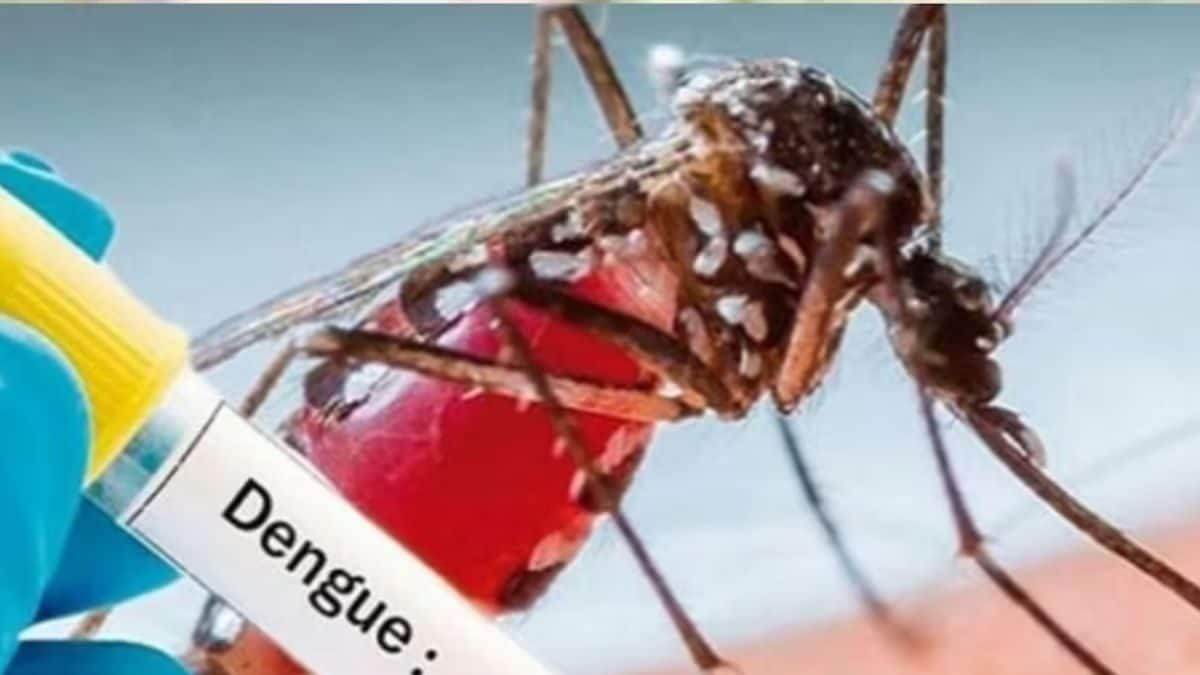Dengue cases peak between July and November.
Understanding the precautions, symptoms, diagnostic tests, and potential neurological effects of dengue is essential for effective prevention and treatment.
Dengue, caused by the dengue virus and transmitted primarily by mosquitoes of the Aedes genus, is a major global health problem, particularly in tropical and subtropical regions. Understanding the precautions, symptoms, diagnostic tests, and potential neurological effects of dengue is essential to effectively prevent and control it.
Symptoms
Dengue symptoms usually appear 4-10 days after the bite of an infected mosquito and can range from mild to severe. Dr Vigyan Mishra, Lab Head, Neuberg Diagnostics, Noida, shares the most common symptoms, including:
- High feverSudden onset of high fever, often reaching 104°F (40°C).
- Intense headacheSevere pain behind the eyes.
- Joint and muscle painSevere pain in muscles and joints, often called “breakbone fever.”
- RashA characteristic rash may appear a few days after the fever begins.
- Nausea and vomitingGastrointestinal symptoms such as nausea, vomiting and abdominal pain.
- FatigueSevere fatigue and weakness may persist for weeks after the acute phase.
- BleedingIn some cases, mild bleeding (such as nosebleeds, bleeding gums, or easy bruising) may occur.
In severe cases, dengue can progress to dengue hemorrhagic fever (DHF) or dengue shock syndrome (DSS), which are life-threatening conditions that require immediate medical attention.
Neurological effects
While dengue is primarily characterized by its systemic symptoms, it can also have neurological effects, although these are relatively rare. Dr. Vinit Banga, Director of Neurology at Fortis Hospital, Faridabad, shares the neurological complications associated with dengue, which include:
- Dengue encephalitisBrain inflammation can cause symptoms such as seizures, altered mental status, and focal neurological deficits.
- MeningitisInflammation of the membranes surrounding the brain and spinal cord, causing headache, neck stiffness, and photophobia.
- Acute disseminated encephalomyelitis (ADEM)ADEM is a rare inflammatory disease that affects the brain and spinal cord and causes symptoms such as weakness, sensory changes and impaired coordination.
- Guillain-Barré Syndrome (GBS)This autoimmune disorder can be triggered by dengue fever and cause muscle weakness, tingling and paralysis.
- NeuropathyPeripheral neuropathy, characterized by numbness, tingling, and pain in the extremities, may also occur.
Understanding the potential neurological effects of dengue is essential for early detection and appropriate treatment. Patients presenting with neurological symptoms should receive immediate medical evaluation and care to prevent complications.
Precautions
Dengue prevention is primarily based on avoiding mosquito bites and reducing mosquito populations. Dr. Mishra shares key precautions:
- Using insect repellentsApplying insect repellents containing DEET, picaridin, or oil of lemon eucalyptus can help deter mosquito bites.
- Use of protective clothingLong-sleeved shirts, long pants, socks, and shoes can reduce skin exposure.
- Mosquito nets and mosquito netsUsing mosquito nets while sleeping, especially in areas without air conditioning or screened windows, is effective.
- Elimination of breeding sitesPeriodically emptying, cleaning, or covering containers that hold water (such as buckets, flower pots, and tires) can reduce mosquito breeding sites.
- Community effortsParticipating in community clean-up campaigns and reporting standing water to local authorities can help control mosquito populations.
Common tests
Diagnosing dengue involves clinical evaluation and laboratory tests. Dr. Mishra explains the most common diagnostic tests:
- NS1 Antigen TestIt detects the presence of the dengue virus antigen and is most effective in the early stages of infection.
- PCR testPolymerase chain reaction (PCR) tests detect viral RNA and are highly specific and useful for confirming dengue infection.
- IgM and IgG antibody testsThese tests detect antibodies produced in response to infection. IgM antibodies appear early, while IgG antibodies indicate a past or recent infection.
- Complete blood count (CBC)A complete blood count can help identify dengue by revealing low platelet counts (thrombocytopenia) and other characteristic changes in the blood.












